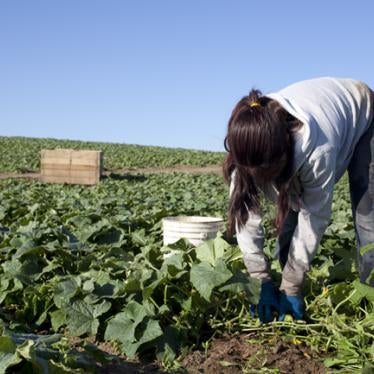South Dakota has agreed to a proposed settlement that would
protect detained children from many inhumane disciplinary practices.
Human Rights Watch welcomed the settlement, which would abolish the current practice of shackling youth in spread-eagled fashion as a form of punishment, known as "four-pointing." It would also strictly limit the placement of youth in isolation cells and would restrict the use of handcuffs on youth to times when they are being transported.
"This is good news for kids in South Dakota," said Michael Bochenek, counsel to the Children's Rights Division of Human Rights Watch. "But it's ridiculous that it took the state nine months to agree to protect them."
Human Rights Watch wrote to Gov. William Janklow in March to decry abuses at the State Training School in Plankinton after receiving reports that it described as "a stunning indictment of the state's juvenile detention system."
The settlement agreement, which received preliminary approval by a federal judge on Monday, would end a class-action lawsuit brought in February against the state Department of Corrections by the Youth Law Center, based in San Francisco and Washington, D.C.
The state had initially sought to have the lawsuit dismissed on the technical ground that some of the juveniles named as plaintiffs were identified by pseudonyms. The use of pseudonyms to identify youth is common in litigation, particularly when they remain in detention.
In addition to "four-pointing" juvenile detainees, guards had routinely chained youth inside their cells and placed children in isolation twenty-three hours a day for extended periods of time, according to youth in detention and their parents. Girls held in the State Training School reported that they have been strip-searched by male guards, sprayed with pepper spray while naked, and handcuffed spread-eagled to their beds.
Many of these abuses were recorded on videotape. Entering cells in teams of three or four while donned in riot gear, guards routinely filmed their efforts to subdue youth, including children charged with minor offenses such as skipping school.
The federal Juvenile Justice and Delinquency Prevention Act, enacted in 1974, requires states to remove all "status offenders"—those who commit acts that would not be crimes if committed by an adult, such as truancy or running away from home—from juvenile detention and correctional facilities. South Dakota is one of only a handful of states that do not comply with this federal mandate.
The proposed settlement would also require the state to accept regular monitoring by the Youth Law Center, correct deficiencies in mental health care and education, and train detention center staff to work with troubled youth.
If accepted by the judge, the state would have one year to implement the agreement.
But Human Rights Watch called on the state to immediately change policies that allow four-pointing and other abusive practices. "The state should have stopped these pointless, cruel abuses long ago," said Bochenek. "There is no reason to delay any longer."








